Lee+Sang+Yeop
-
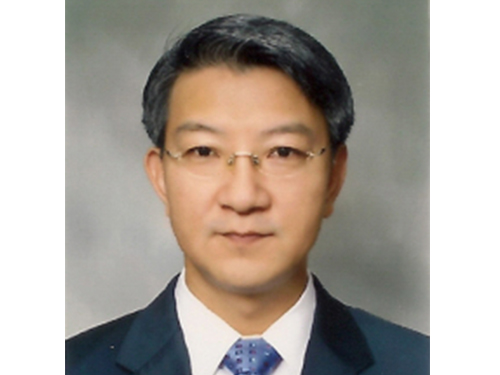 Distinguished Professor Sang Yup Lee Attends World Economic Forum's Workshop
Sang Yup Lee, Distinguished Professor of Chemical and Biomolecular Engineering at KAIST was invited to attend the Technology Pioneer and Global Growth Company CEO Workshop hosted by the World Economic Forum (WEF) on June 19-20, 2014 in San Francisco. During the workshop, Professor Lee joined a discussion on “disruptive technologies” as a panelist.
Currently serving for the evaluation committee that selects technology pioneers for the workshop, during the discussion, Professor Lee identified important issues facing humanity, analyzed the issues through forecasting, and presented converging disruptive technologies that provide solutions to the problems. He also shared the “ten emerging technologies” announced by the Global Agenda Council on Emerging Technologies, WEF and the Korean government’s technology innovation strategies adopted to achieve its economic development policy called creative economy.
2014.06.22 View 9938
Distinguished Professor Sang Yup Lee Attends World Economic Forum's Workshop
Sang Yup Lee, Distinguished Professor of Chemical and Biomolecular Engineering at KAIST was invited to attend the Technology Pioneer and Global Growth Company CEO Workshop hosted by the World Economic Forum (WEF) on June 19-20, 2014 in San Francisco. During the workshop, Professor Lee joined a discussion on “disruptive technologies” as a panelist.
Currently serving for the evaluation committee that selects technology pioneers for the workshop, during the discussion, Professor Lee identified important issues facing humanity, analyzed the issues through forecasting, and presented converging disruptive technologies that provide solutions to the problems. He also shared the “ten emerging technologies” announced by the Global Agenda Council on Emerging Technologies, WEF and the Korean government’s technology innovation strategies adopted to achieve its economic development policy called creative economy.
2014.06.22 View 9938 -
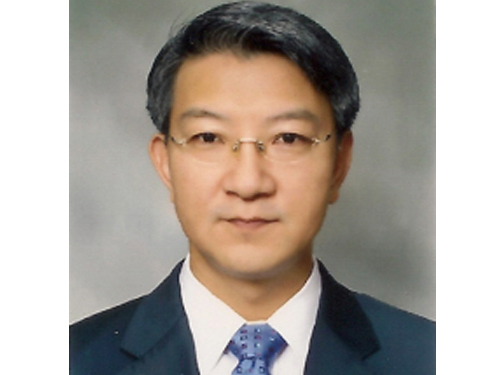 Professor Sang-Yup Lee Named the Winner of the Ho-Am Prize in 2014
The Ho-Am Prize, awarded by Samsung Group’s Ho-Am Foundation, was announced on April 2, 2014 in Seoul. Professor Sang-Yup Lee of Chemical and Biomolecular Engineering at KAIST was among the five recipients.
The prize is presented to Koreans who have made great contributions to the development of Korea in the field of science, engineering, medicine, arts, and philanthropy.
Professor Lee received the award in recognition of his pioneering research on systems metabolic engineering.
For the story written by Korea Joongang Daily, please go to the link below:
Ho-Am Foundation Names Annual Prize Winners
Korea Joongang Daily
April 3, 2014
http://koreajoongangdaily.joins.com/news/article/Article.aspx?aid=2987332
2014.04.03 View 11271
Professor Sang-Yup Lee Named the Winner of the Ho-Am Prize in 2014
The Ho-Am Prize, awarded by Samsung Group’s Ho-Am Foundation, was announced on April 2, 2014 in Seoul. Professor Sang-Yup Lee of Chemical and Biomolecular Engineering at KAIST was among the five recipients.
The prize is presented to Koreans who have made great contributions to the development of Korea in the field of science, engineering, medicine, arts, and philanthropy.
Professor Lee received the award in recognition of his pioneering research on systems metabolic engineering.
For the story written by Korea Joongang Daily, please go to the link below:
Ho-Am Foundation Names Annual Prize Winners
Korea Joongang Daily
April 3, 2014
http://koreajoongangdaily.joins.com/news/article/Article.aspx?aid=2987332
2014.04.03 View 11271 -
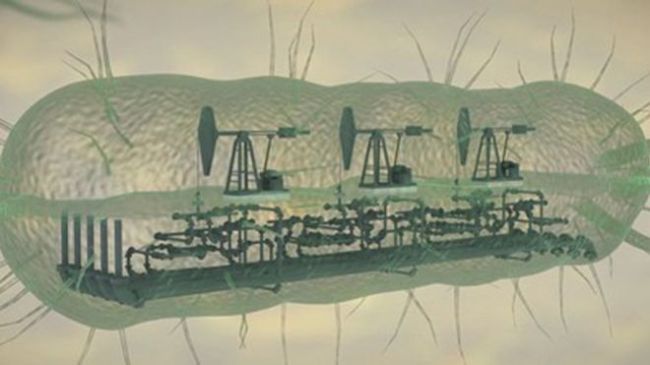 The Korea Herald: Synthetic Biology Holds Key to Future
The Korea Herald
, a leading English newspaper in Korea, published an article on the production of gasoline by a metabolically engineered microorganism. For the article, please go to the link below:
The Korea Herald
March 14, 2014
"Synthetic biology holds key to future"
KAIST professor makes breakthrough in biorefining using E. coli’s metabolic process
http://www.koreaherald.com/view.php?ud=20140314001343
2014.03.17 View 8688
The Korea Herald: Synthetic Biology Holds Key to Future
The Korea Herald
, a leading English newspaper in Korea, published an article on the production of gasoline by a metabolically engineered microorganism. For the article, please go to the link below:
The Korea Herald
March 14, 2014
"Synthetic biology holds key to future"
KAIST professor makes breakthrough in biorefining using E. coli’s metabolic process
http://www.koreaherald.com/view.php?ud=20140314001343
2014.03.17 View 8688 -
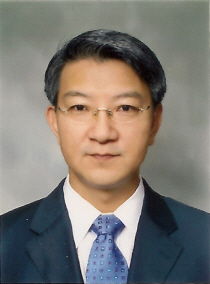 Distinguished Professor Sang Yup Lee appointed as an advisor for Shanghai Jiao Tong University in China
In recognition of his outstanding accomplishments in the area of bioengineering, specializing in metabolic engineering, Sang Yup Lee, a distinguished professor of Chemical & Biomolecular Engineering at KAIST, was assigned as an advisory professor for the bioengineering department at Shanghai Jiao Tong University in China for five years from August 2013 to July 2018.
Together with Peking University and Tsinghua University, Shanghai Jiao Tong University is one of the top three universities in China.
The advisory professors carry out collaborated research programs in special areas and provide advice on education and research issues.
Professor Lee, a specialist in metabolic engineering, has initiated systems metabolic engineering which integrates metabolic engineering, systems biology, and synthetic biology and has applied it to various chemical production systems to develop bio fuel and many eco-friendly chemical production processes. Recently, he received the Marvin J. Johnson Award from the American Chemistry Society, the Charles Thom Award from the American Society for Industrial Microbiology, as well as the Amgen Biochemical Engineering Award. As a global leader in the area of bioengineering, Professor Lee is a member of the Korean Academy of Science & Technology, the National Academy of Engineering of Korea, the US National Academy of Engineering, and is the chairman of the Global Agenda Council on Biotechnology at the World Economic Forum.
2013.10.31 View 10123
Distinguished Professor Sang Yup Lee appointed as an advisor for Shanghai Jiao Tong University in China
In recognition of his outstanding accomplishments in the area of bioengineering, specializing in metabolic engineering, Sang Yup Lee, a distinguished professor of Chemical & Biomolecular Engineering at KAIST, was assigned as an advisory professor for the bioengineering department at Shanghai Jiao Tong University in China for five years from August 2013 to July 2018.
Together with Peking University and Tsinghua University, Shanghai Jiao Tong University is one of the top three universities in China.
The advisory professors carry out collaborated research programs in special areas and provide advice on education and research issues.
Professor Lee, a specialist in metabolic engineering, has initiated systems metabolic engineering which integrates metabolic engineering, systems biology, and synthetic biology and has applied it to various chemical production systems to develop bio fuel and many eco-friendly chemical production processes. Recently, he received the Marvin J. Johnson Award from the American Chemistry Society, the Charles Thom Award from the American Society for Industrial Microbiology, as well as the Amgen Biochemical Engineering Award. As a global leader in the area of bioengineering, Professor Lee is a member of the Korean Academy of Science & Technology, the National Academy of Engineering of Korea, the US National Academy of Engineering, and is the chairman of the Global Agenda Council on Biotechnology at the World Economic Forum.
2013.10.31 View 10123 -
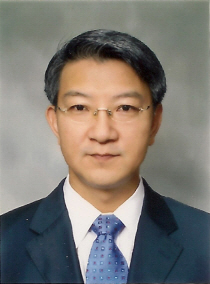 Distinguished Professor Sang-Yup Lee received 2013 Amgen Biochemical Engineering Award
- Previous award winners are world-renowned scholars of biochemical engineering including James Bailey, Michael Shuler and Daniel Wang
KAIST Chemical and Biomolecular Engineering Department’s Professor Sang-Yup Lee has been selected to receive the 2013 Amgen Biochemical Engineering Award. The award ceremony will take place this June at the International Biochemical and Molecular Engineering conference in Beijing, China.
The Amgen Biochemical Engineering Award was established by Amgen, a world renowned American pharmaceutical company, in 1993. Amgen awards leading biochemical engineers every two years. The first Amgen award recipient was James Bailey of the California Institute of Technology (Caltech) in 1993. Since then leading engineers that are sometimes called “founding fathers of biochemical engineering” have received the award including MIT Professor Daniel Wang and Michael Shuler of Cornell University.
The first nine award winners were Americans and in 2011 Jens Nielson of Chalmers University of Technology, Sweden, received the Amgen award as a non-American. Professor Sang-Yup Lee is the first Asian to receive the award.
The Amgen award panel said, “Professor Lee made an incredible contribution to the fields of synthetic biology and industrial bioengineering by finding chemical material, fuel, protein and drug production and system bioengineering through metabolic engineering of microorganisms.”
Professor Lee is an expert in metabolic engineering of microorganisms and contributed to the development of system metabolic engineering and system bioengineering. Furthermore, he developed various medical and chemical products and processes which were then applied to synthesise strains of succinate, plastics, butanol and nylon.
Professor Lee is a fellow of the Korean Academy of Science and Technology and National Academy Engineering of Korea; an international member of National Academy of Engineering (US); a former fellow of the American Association for the Advancement of Science; a member of the American Institute of Chemical Engineers, the American Industrial Microbiology Society and American Academy of Microbiology. He is currently Head of Global Agenda Council on Biotechnology and is world renowned for his work in biotechnology field.
2013.04.30 View 9943
Distinguished Professor Sang-Yup Lee received 2013 Amgen Biochemical Engineering Award
- Previous award winners are world-renowned scholars of biochemical engineering including James Bailey, Michael Shuler and Daniel Wang
KAIST Chemical and Biomolecular Engineering Department’s Professor Sang-Yup Lee has been selected to receive the 2013 Amgen Biochemical Engineering Award. The award ceremony will take place this June at the International Biochemical and Molecular Engineering conference in Beijing, China.
The Amgen Biochemical Engineering Award was established by Amgen, a world renowned American pharmaceutical company, in 1993. Amgen awards leading biochemical engineers every two years. The first Amgen award recipient was James Bailey of the California Institute of Technology (Caltech) in 1993. Since then leading engineers that are sometimes called “founding fathers of biochemical engineering” have received the award including MIT Professor Daniel Wang and Michael Shuler of Cornell University.
The first nine award winners were Americans and in 2011 Jens Nielson of Chalmers University of Technology, Sweden, received the Amgen award as a non-American. Professor Sang-Yup Lee is the first Asian to receive the award.
The Amgen award panel said, “Professor Lee made an incredible contribution to the fields of synthetic biology and industrial bioengineering by finding chemical material, fuel, protein and drug production and system bioengineering through metabolic engineering of microorganisms.”
Professor Lee is an expert in metabolic engineering of microorganisms and contributed to the development of system metabolic engineering and system bioengineering. Furthermore, he developed various medical and chemical products and processes which were then applied to synthesise strains of succinate, plastics, butanol and nylon.
Professor Lee is a fellow of the Korean Academy of Science and Technology and National Academy Engineering of Korea; an international member of National Academy of Engineering (US); a former fellow of the American Association for the Advancement of Science; a member of the American Institute of Chemical Engineers, the American Industrial Microbiology Society and American Academy of Microbiology. He is currently Head of Global Agenda Council on Biotechnology and is world renowned for his work in biotechnology field.
2013.04.30 View 9943 -
 New BioFactory Technique Developed using sRNAs
Professor Sang Yup Lee
- published on the online edition of Nature Biotechnology. “Expected as a new strategy for the bio industry that may replace the chemical industry.”-
KAIST Chemical & Biomolecular engineering department’s Professor Sang Yup Lee and his team has developed a new technology that utilizes the synthetic small regulatory RNAs (sRNAs) to implement the BioFactory in a larger scale with more effectiveness.
* BioFactory: Microbial-based production system which creates the desired compound in mass by manipulating the genes of the cell.
In order to solve the problems of modern society, such as environmental pollution caused by the exhaustion of fossil fuels and usage of petrochemical products, an eco-friendly and sustainable bio industry is on the rise. BioFactory development technology has especially attracted the attention world-wide, with its ability to produce bio-energy, pharmaceuticals, eco-friendly materials and more.
For the development of an excellent BioFactory, selection for the gene that produces the desired compounds must be accompanied by finding the microorganism with high production efficiency; however, the previous research method had a complicated and time-consuming problem of having to manipulate the genes of the microorganism one by one.
Professor Sang Yup Lee’s research team, including Dr. Dokyun Na and Dr. Seung Min Yoo, has produced the synthetic sRNAs and utilized it to overcome the technical limitations mentioned above.
In particular, unlike the existing method, this technology using synthetic sRNAs exhibits no strain specificity which can dramatically shorten the experiment that used to take months to just a few days.
The research team applied the synthetic small regulatory RNA technology to the production of the tyrosine*, which is used as the precursor of the medicinal compound, and cadaverine**, widely utilized in a variety of petrochemical products, and has succeeded developing BioFactory with the world’s highest yield rate (21.9g /L, 12.6g / L each).
*tyrosine: amino acid known to control stress and improve concentration
**cadaverine: base material used in many petrochemical products, such as polyurethane
Professor Sang Yup Lee highlighted the significance of this research: “it is expected the synthetic small regulatory RNA technology will stimulate the BioFactory development and also serve as a catalyst which can make the chemical industry, currently represented by its petroleum energy, transform into bio industry.”
The study was carried out with the support of Global Frontier Project (Intelligent Bio-Systems Design and Synthesis Research Unit (Chief Seon Chang Kim)) and the findings have been published on January 20th in the online edition of the worldwide journal Nature Biotechnology.
2013.02.21 View 13273
New BioFactory Technique Developed using sRNAs
Professor Sang Yup Lee
- published on the online edition of Nature Biotechnology. “Expected as a new strategy for the bio industry that may replace the chemical industry.”-
KAIST Chemical & Biomolecular engineering department’s Professor Sang Yup Lee and his team has developed a new technology that utilizes the synthetic small regulatory RNAs (sRNAs) to implement the BioFactory in a larger scale with more effectiveness.
* BioFactory: Microbial-based production system which creates the desired compound in mass by manipulating the genes of the cell.
In order to solve the problems of modern society, such as environmental pollution caused by the exhaustion of fossil fuels and usage of petrochemical products, an eco-friendly and sustainable bio industry is on the rise. BioFactory development technology has especially attracted the attention world-wide, with its ability to produce bio-energy, pharmaceuticals, eco-friendly materials and more.
For the development of an excellent BioFactory, selection for the gene that produces the desired compounds must be accompanied by finding the microorganism with high production efficiency; however, the previous research method had a complicated and time-consuming problem of having to manipulate the genes of the microorganism one by one.
Professor Sang Yup Lee’s research team, including Dr. Dokyun Na and Dr. Seung Min Yoo, has produced the synthetic sRNAs and utilized it to overcome the technical limitations mentioned above.
In particular, unlike the existing method, this technology using synthetic sRNAs exhibits no strain specificity which can dramatically shorten the experiment that used to take months to just a few days.
The research team applied the synthetic small regulatory RNA technology to the production of the tyrosine*, which is used as the precursor of the medicinal compound, and cadaverine**, widely utilized in a variety of petrochemical products, and has succeeded developing BioFactory with the world’s highest yield rate (21.9g /L, 12.6g / L each).
*tyrosine: amino acid known to control stress and improve concentration
**cadaverine: base material used in many petrochemical products, such as polyurethane
Professor Sang Yup Lee highlighted the significance of this research: “it is expected the synthetic small regulatory RNA technology will stimulate the BioFactory development and also serve as a catalyst which can make the chemical industry, currently represented by its petroleum energy, transform into bio industry.”
The study was carried out with the support of Global Frontier Project (Intelligent Bio-Systems Design and Synthesis Research Unit (Chief Seon Chang Kim)) and the findings have been published on January 20th in the online edition of the worldwide journal Nature Biotechnology.
2013.02.21 View 13273 -
 Distinguished Professor Sang-Yeop Lee gave keynote speech in '2011 China Bio-Refinery Summit'
Distinguished Professor Sang-Yeop Lee gave keynote speech in ‘2011 China Bio-Refinery Summit’ held in Chang’an, Beijing
Professor Lee gave a lecture on the vitalization strategy of ‘Bio-Refinery’, which is ‘A bio-based chemical industry to replace fossil fuel-based petro chemistry.
Professor Lee, insisted that for the successful construction of ‘Bio-Refinery’, there should be innovation in all value chain of biomass; biomass producer, bio-refinery business, consumer, government, etc. ▲Securement and distribution of Biomass ▲Development of strain and process for fermentation separation to effectively change biomass into chemical substance and fuel ▲Optimization of transportation and marketing.
During this summit, high-ranking government officials in politics and economics, executives of multicultural and Chinese business participated. From Korea, Do-Young Seung of Manager of technology research of GS and Hang-Deok Roh of laboratory chief of SK Chemical participated as panelist.
World Economy Forum, the gathering of leaders and experts in politics, economics, and policy created a ‘Global Agenda Council’ to find solutions on the issue of ‘sustainable growth of environment of the Earth and humanity’. Professor Lee is the chairperson of ‘Emerging Technologies Global Agenda Council (GAC)’ of Word Economy Forum.
Professor Lee, founder of ‘Systems Metabolic Engineering’, has made remarkable achievements world-wide, including a technology that manipulates metabolic circuit of microorganisms to purify various crude-originated chemical substances into environmentally friendly substances.
Currently, he is working on Systems biology research business in Ministry of Education, Science and Technology, Global Frontier Biomass business, Global Frontier Intelligent Bio-system construction and composition, to make progress in metabolic engineering which is essential for the bio-chemical industry.
2012.03.06 View 14020
Distinguished Professor Sang-Yeop Lee gave keynote speech in '2011 China Bio-Refinery Summit'
Distinguished Professor Sang-Yeop Lee gave keynote speech in ‘2011 China Bio-Refinery Summit’ held in Chang’an, Beijing
Professor Lee gave a lecture on the vitalization strategy of ‘Bio-Refinery’, which is ‘A bio-based chemical industry to replace fossil fuel-based petro chemistry.
Professor Lee, insisted that for the successful construction of ‘Bio-Refinery’, there should be innovation in all value chain of biomass; biomass producer, bio-refinery business, consumer, government, etc. ▲Securement and distribution of Biomass ▲Development of strain and process for fermentation separation to effectively change biomass into chemical substance and fuel ▲Optimization of transportation and marketing.
During this summit, high-ranking government officials in politics and economics, executives of multicultural and Chinese business participated. From Korea, Do-Young Seung of Manager of technology research of GS and Hang-Deok Roh of laboratory chief of SK Chemical participated as panelist.
World Economy Forum, the gathering of leaders and experts in politics, economics, and policy created a ‘Global Agenda Council’ to find solutions on the issue of ‘sustainable growth of environment of the Earth and humanity’. Professor Lee is the chairperson of ‘Emerging Technologies Global Agenda Council (GAC)’ of Word Economy Forum.
Professor Lee, founder of ‘Systems Metabolic Engineering’, has made remarkable achievements world-wide, including a technology that manipulates metabolic circuit of microorganisms to purify various crude-originated chemical substances into environmentally friendly substances.
Currently, he is working on Systems biology research business in Ministry of Education, Science and Technology, Global Frontier Biomass business, Global Frontier Intelligent Bio-system construction and composition, to make progress in metabolic engineering which is essential for the bio-chemical industry.
2012.03.06 View 14020 -
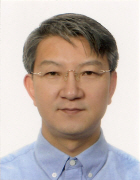 Professor Lee Sang Yeop Nominated the Chairman of Emerging Technologies Global Agenda Council of the World Economic Forum
Professor Lee Sang Yeop, Dean of College Life Science & Bioengineering, was appointed as the chairman of the Emerging Technologies Global Agenda Council of the World Economic Forum.
He will be in office till the 31st of August 2012, exactly 1 year from the date of his appointment.
The World Economic Forum (WEF) is a ‘think tank’ consisting of world leaders in various fields like economics, politics, and policies and has created the ‘Global Agenda Council’ to solve the problems mankind faces in achieving environmentally sustainable growth and suggest a collective vision and strategy.
The committee to be chaired by Professor Lee (Emerging Technologies Global Agenda Council) will discuss the direction in which the fields of biological engineering, nanotechnology, and IT (information technology) should develop and discuss the possible impact these fields will have on the society.
Professor Lee commented that, “I am extremely happy to be appointed as the chair of the Emerging Technologies Global Agenda Council at the World Economic Forum which is a gathering of world class leaders” and that “it is a great opportunity to spread Korea’s success and lessons in the advancement of science and technology.”
Professor Lee is the creator of the field of system metabolism engineering and is making great strides in manipulating the microorganism’s metabolic pathways on a systems scale to make changing chemicals derived from oil into eco-friendly and bio-based products.
2011.09.20 View 10686
Professor Lee Sang Yeop Nominated the Chairman of Emerging Technologies Global Agenda Council of the World Economic Forum
Professor Lee Sang Yeop, Dean of College Life Science & Bioengineering, was appointed as the chairman of the Emerging Technologies Global Agenda Council of the World Economic Forum.
He will be in office till the 31st of August 2012, exactly 1 year from the date of his appointment.
The World Economic Forum (WEF) is a ‘think tank’ consisting of world leaders in various fields like economics, politics, and policies and has created the ‘Global Agenda Council’ to solve the problems mankind faces in achieving environmentally sustainable growth and suggest a collective vision and strategy.
The committee to be chaired by Professor Lee (Emerging Technologies Global Agenda Council) will discuss the direction in which the fields of biological engineering, nanotechnology, and IT (information technology) should develop and discuss the possible impact these fields will have on the society.
Professor Lee commented that, “I am extremely happy to be appointed as the chair of the Emerging Technologies Global Agenda Council at the World Economic Forum which is a gathering of world class leaders” and that “it is a great opportunity to spread Korea’s success and lessons in the advancement of science and technology.”
Professor Lee is the creator of the field of system metabolism engineering and is making great strides in manipulating the microorganism’s metabolic pathways on a systems scale to make changing chemicals derived from oil into eco-friendly and bio-based products.
2011.09.20 View 10686 -
 Dong Ah Newspaper Publish '100 Koreans who will Represent Korea in 10 years'
The 2011 list of ‘100 Koreans who will Represent Korea in 10 years’ published by Dong Ah Newspaper includes people of varying ages, vocation, and gender.
In terms of University Professors, five professors from each of KAIST and SNU (Seoul National University) were selected. Especially Professor Charles Ahn received the most votes due to his world class talent, potential, and dedication.
Professor Kim Sang Wook of the Department of Materials Science and Engineering is the world leading expert in the field of ‘Atom Construction Nanotechnology’ which deals with using macromolecules, carbon nanotubes, and grapheme to form various structures. His work on ‘low cost, large area nano patterning technology’ is expected to overcome the limits of nano treatment processes and its application in semi-conductors or displays carries great promise.
Professor Kim Eun Sung of the Department of Physics discovered a new quantum behavior, supersolidity, in a low temperature, solid Helium for the first time in the world and is the leading scientist that leads the mechanics behind such a phenomenon. Professor Kim is leading the field of supersolidity through his works on hidden phase in a low temperature solid Helium, the understanding the role of crystalline faults in the supersolidity phenomenon, and the destruction of the supersolid’s macromolecular phenomenon through spinning solids.
Professor Charles Ahn of the Graduate School of Innovation and Technology Management has been working as the developer of the V3 series (an anti-computer virus Vaccine Program) since 1988. He established the ‘Charles Ahn Research Center’ in 1995 and his solid and practical management style won him rave reviews. Professor Ahn was appointed as the Professor of the Graduate School of Innovation and Technology Management and has been teaching entrepreneurial perspective and Technology Management.
Professor Lee Sang Yeop of the Department of Biology and Chemical Engineering developed world’s most efficient production method of succinic acid, developed high efficiency, tailored, culture for the production of key amino acids, Valine and Threonine, developed the production culture off bio-buthanol which is superior to bio-ethanol, and is widely known as one of the leaders in the field of metabolic engineering.
Professor Jeong Ha Woong of the Department of Physics is being regarded as world leader in the field of Complex System Network Sciences. He implemented Statistical Physics to Complex Systems and also used the concept of ‘Networks’ and published 80 papers, including 5 which were published in Nature Magazine.
2011.04.30 View 15202
Dong Ah Newspaper Publish '100 Koreans who will Represent Korea in 10 years'
The 2011 list of ‘100 Koreans who will Represent Korea in 10 years’ published by Dong Ah Newspaper includes people of varying ages, vocation, and gender.
In terms of University Professors, five professors from each of KAIST and SNU (Seoul National University) were selected. Especially Professor Charles Ahn received the most votes due to his world class talent, potential, and dedication.
Professor Kim Sang Wook of the Department of Materials Science and Engineering is the world leading expert in the field of ‘Atom Construction Nanotechnology’ which deals with using macromolecules, carbon nanotubes, and grapheme to form various structures. His work on ‘low cost, large area nano patterning technology’ is expected to overcome the limits of nano treatment processes and its application in semi-conductors or displays carries great promise.
Professor Kim Eun Sung of the Department of Physics discovered a new quantum behavior, supersolidity, in a low temperature, solid Helium for the first time in the world and is the leading scientist that leads the mechanics behind such a phenomenon. Professor Kim is leading the field of supersolidity through his works on hidden phase in a low temperature solid Helium, the understanding the role of crystalline faults in the supersolidity phenomenon, and the destruction of the supersolid’s macromolecular phenomenon through spinning solids.
Professor Charles Ahn of the Graduate School of Innovation and Technology Management has been working as the developer of the V3 series (an anti-computer virus Vaccine Program) since 1988. He established the ‘Charles Ahn Research Center’ in 1995 and his solid and practical management style won him rave reviews. Professor Ahn was appointed as the Professor of the Graduate School of Innovation and Technology Management and has been teaching entrepreneurial perspective and Technology Management.
Professor Lee Sang Yeop of the Department of Biology and Chemical Engineering developed world’s most efficient production method of succinic acid, developed high efficiency, tailored, culture for the production of key amino acids, Valine and Threonine, developed the production culture off bio-buthanol which is superior to bio-ethanol, and is widely known as one of the leaders in the field of metabolic engineering.
Professor Jeong Ha Woong of the Department of Physics is being regarded as world leader in the field of Complex System Network Sciences. He implemented Statistical Physics to Complex Systems and also used the concept of ‘Networks’ and published 80 papers, including 5 which were published in Nature Magazine.
2011.04.30 View 15202 -
 The 40th Anniversary of the Establishment of KAIST Commemoration Held
KAIST, aspiring to become the best Science and Technology University, has turned 40.
KAIST held the commemoration ceremony for the 40th Anniversary of the Establishment of KAIST in the auditorium.
Five awards (Scholar, Creative Lecture, Excellence in Lecture, International Cooperation, Experiment) were given to Professors Kim Eun Jun and Walton Jones (department of Biology), Professor Abigail Shin (department of Humanities and Social Sciences), Professor Shin Seong Chul (department of Physics), and Professor Lee Sang Yeop (department of Biological Chemical Engineering). Each recipient received a prize of five million won.
Professor Song Joon Hwa (department of Computer Sciences) received the ‘New Knowledge Award’ in recognition of his development of the Orchestrator Mobile platform. The new platform is different from Android or the IOS platform in that it allows a fluid relationship to be formed between the smartphone and the user.
KAIST also showed off its new emblem.
The emblem consists of a star which represents the KAIST’s goals of becoming the world leader, of training leaders, the center point, and hope. The main keywords are: ‘Leadership’, ‘Premium’, ‘Scientific’, and ‘Humanity’.
KAIST plans on having various events from May 9th when there will be the Vision Declaration.
2011.02.21 View 17542
The 40th Anniversary of the Establishment of KAIST Commemoration Held
KAIST, aspiring to become the best Science and Technology University, has turned 40.
KAIST held the commemoration ceremony for the 40th Anniversary of the Establishment of KAIST in the auditorium.
Five awards (Scholar, Creative Lecture, Excellence in Lecture, International Cooperation, Experiment) were given to Professors Kim Eun Jun and Walton Jones (department of Biology), Professor Abigail Shin (department of Humanities and Social Sciences), Professor Shin Seong Chul (department of Physics), and Professor Lee Sang Yeop (department of Biological Chemical Engineering). Each recipient received a prize of five million won.
Professor Song Joon Hwa (department of Computer Sciences) received the ‘New Knowledge Award’ in recognition of his development of the Orchestrator Mobile platform. The new platform is different from Android or the IOS platform in that it allows a fluid relationship to be formed between the smartphone and the user.
KAIST also showed off its new emblem.
The emblem consists of a star which represents the KAIST’s goals of becoming the world leader, of training leaders, the center point, and hope. The main keywords are: ‘Leadership’, ‘Premium’, ‘Scientific’, and ‘Humanity’.
KAIST plans on having various events from May 9th when there will be the Vision Declaration.
2011.02.21 View 17542